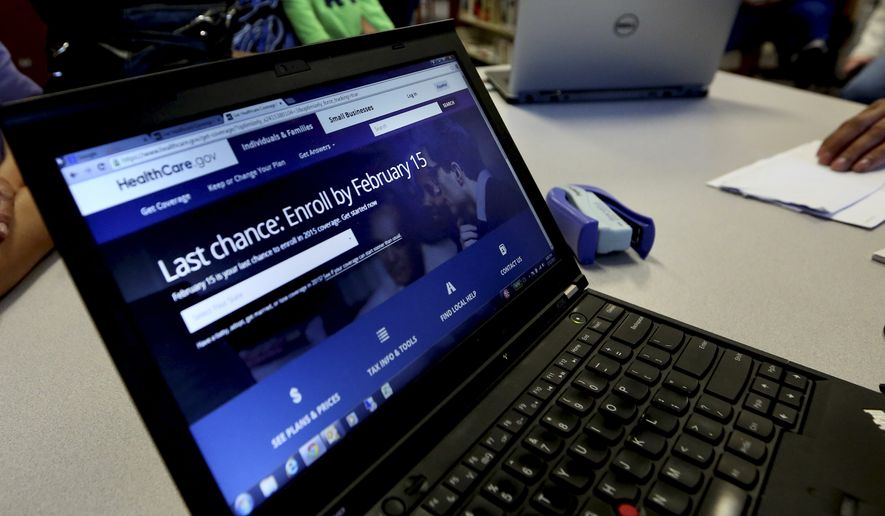Insurers, a tech company and advocacy groups banded together Thursday to demand that Obamacare provide better data to consumers on price and quality, saying it’s easier to compare hotel rooms than it is to choose between health care plans.
With the U.S. poised to spend roughly $40 trillion on health care over the next decade, the “Clear Choices” initiative said it wants consumers to have more control over that spending so that they know if they’ve chosen the best doctor for their needs, or how much a major procedure will cost.
“Consumers have the right to know what they’re buying. It’s pretty simple,” said Joel White, president of the Council for Affordable Coverage.
The group, which counts major insurer Aetna and seniors advocacy group AARP among its members, said it hopes to join a growing effort on Capitol Hill to make claims data widely accessible, particularly to the analysts who crunch the data and drive changes in the marketplace.
Data are a big part of Obamacare, with analysts saying more information means better choices. But there’s also a danger of consumers being overwhelmed, particularly by data they may not have the knowledge to evaluate.
The Obama administration in 2013 released data on what various hospitals charge Medicare for common services, exposing major differences. For example, a hospital in New Jersey charged $30,000 less to implant a pacemaker than one about 20 miles away, and there was an ever greater price gap for gall bladder surgery between two Florida hospitals down the road from each other, a New York Times analysis found at the time.
Consumer advocates cheered the release, and said more is needed — but prying the data loose could be difficult, with the Clear Choices coalition saying that securing reliable price information from hospitals remains a Kafkaesque endeavor.
Christine Riedl, chief of Aetna’s product strategy, showed off a Web tool Thursday that lets policy holders simulate a claim, providing them a heads-up on their potential costs.
Beyond prices, advocates said consumers should be able to rate doctors and other health care providers, even if some bitter customers will give unfair reviews.
“It’s like TripAdvisor. You’ve got to take it all with a grain of salt, but this is the world we live in now, and consumers want this information,” said Sally Greenberg, executive director of the National Consumers League.
The coalition also said consumers can’t always figure out the financial links between providers, leaving patients to wonder whether they are being referred to a practitioner out of concern for their care or to pad a doctor’s pocket.
And they said Obamacare’s insurance portals could do a better job of detailing which plans cover specific drugs, and whether users will still be able to see their regular doctor.
Mr. White, a former Republican Hill staffer, said the climate around health care may be frosty because of Obamacare, but there’s still room for agreement.
“It’s figuring out that sweet spot where Republicans and Democrats can come together,” he said, “and then convincing leadership it’s not going to blow up the floor when you move the bill.”
In response, the Department of Health and Human Services said Thursday it already is making the insurance marketplace more user-friendly by making it easier to compare plans and linking to directories that let users see which doctors are in a plan’s network.
Kelly Brantley, a senior manager at Avalere Health, a Washington-based consultancy, said the HealthCare.gov website is more user-friendly this year than it was in its first go-around last year, but it remains to be seen if consumers can find the right plans for their needs.
“That matching process,” she said, “is the key to the success of this whole endeavor.”
The coalition said it expects Congress to take a small step toward more transparency if it passes a Medicare payment overhaul bill that cleared the House last month and will hit the Senate floor next week. The bill would allow academics, known as “qualified entities,” to study Medicaid claims data and figure out which procedures work best for patients.
“Freeing that data,” the coalition said, “could empower us to save trillions and improve care.”
• Tom Howell Jr. can be reached at thowell@washingtontimes.com.




Please read our comment policy before commenting.